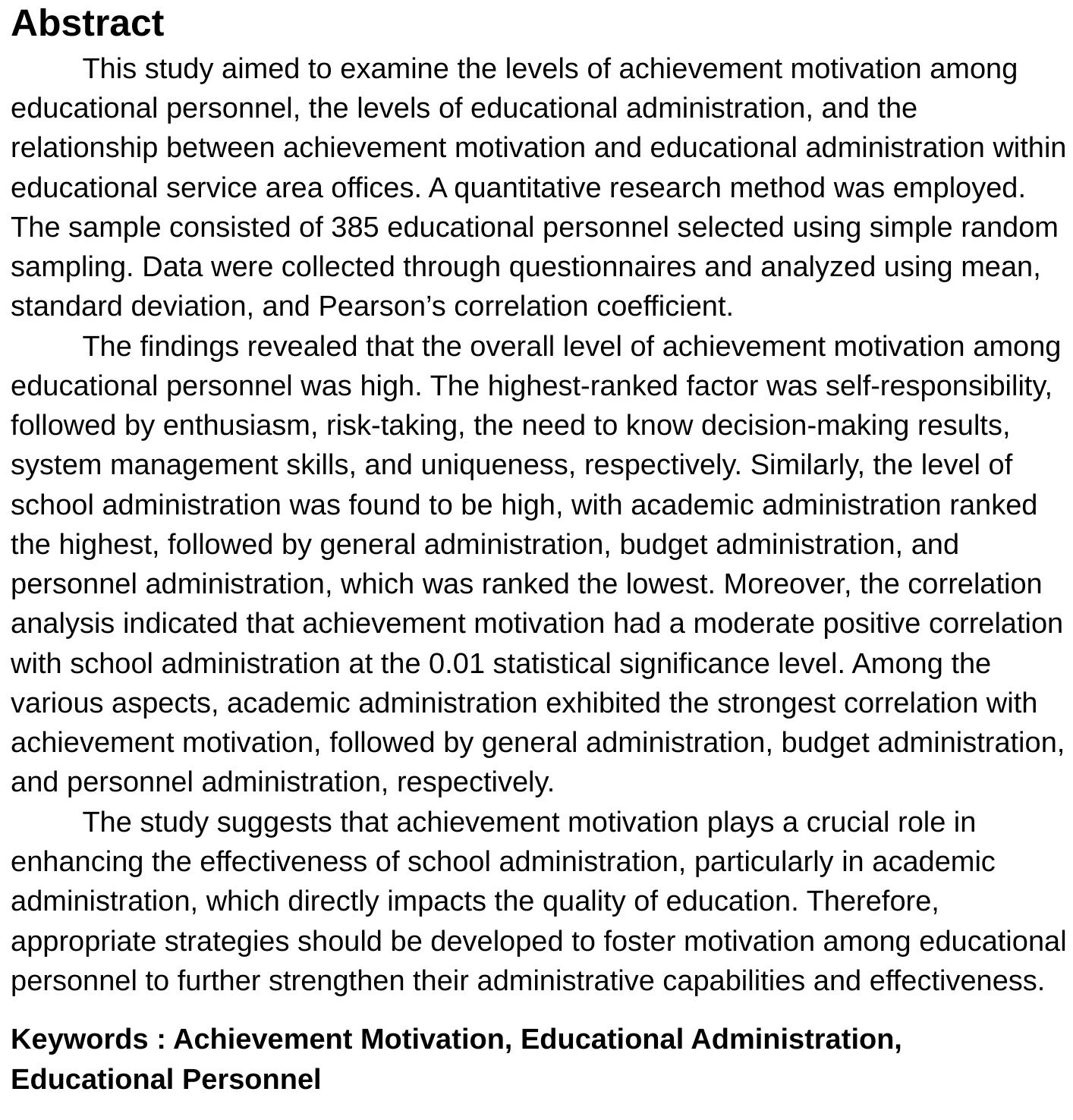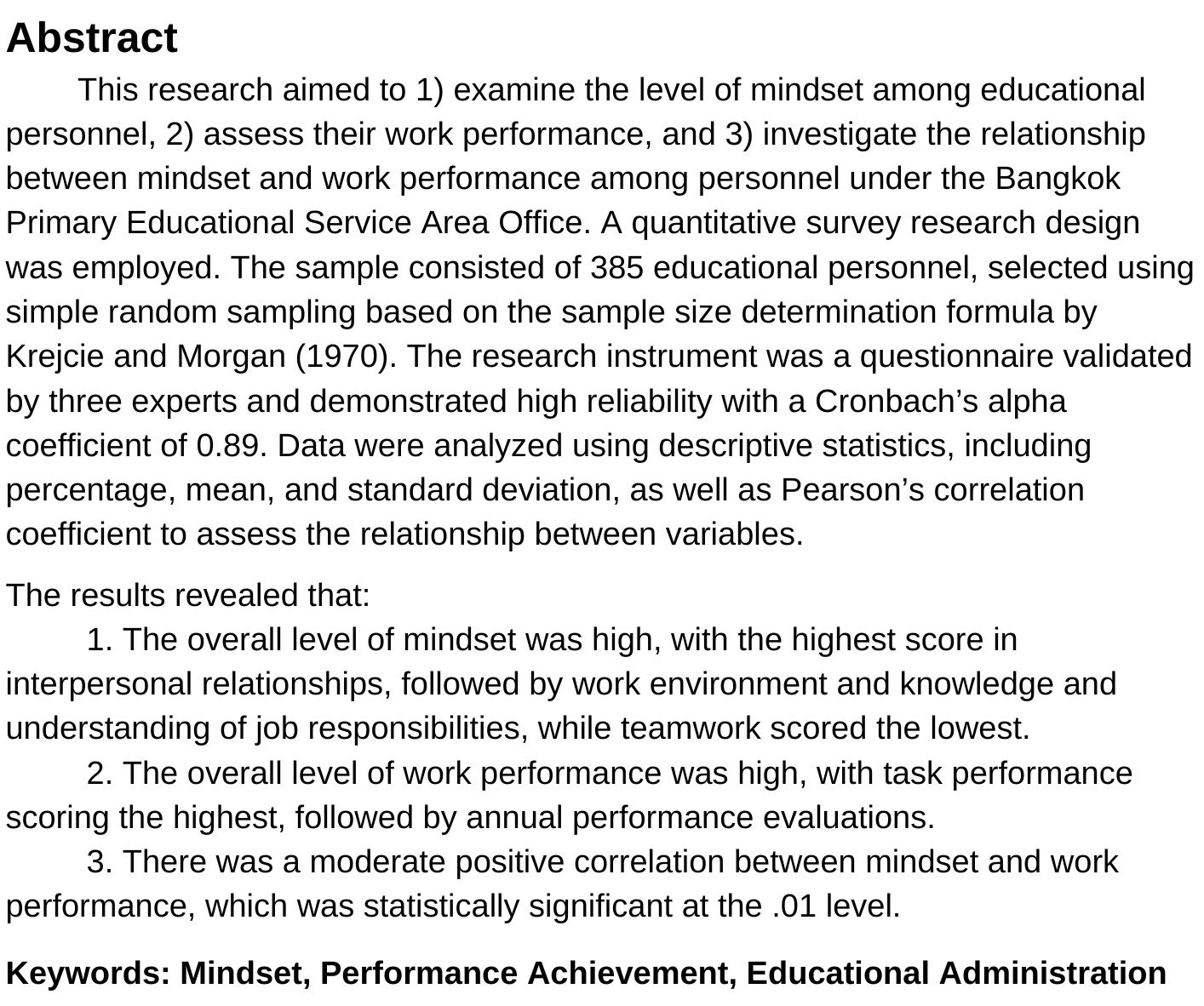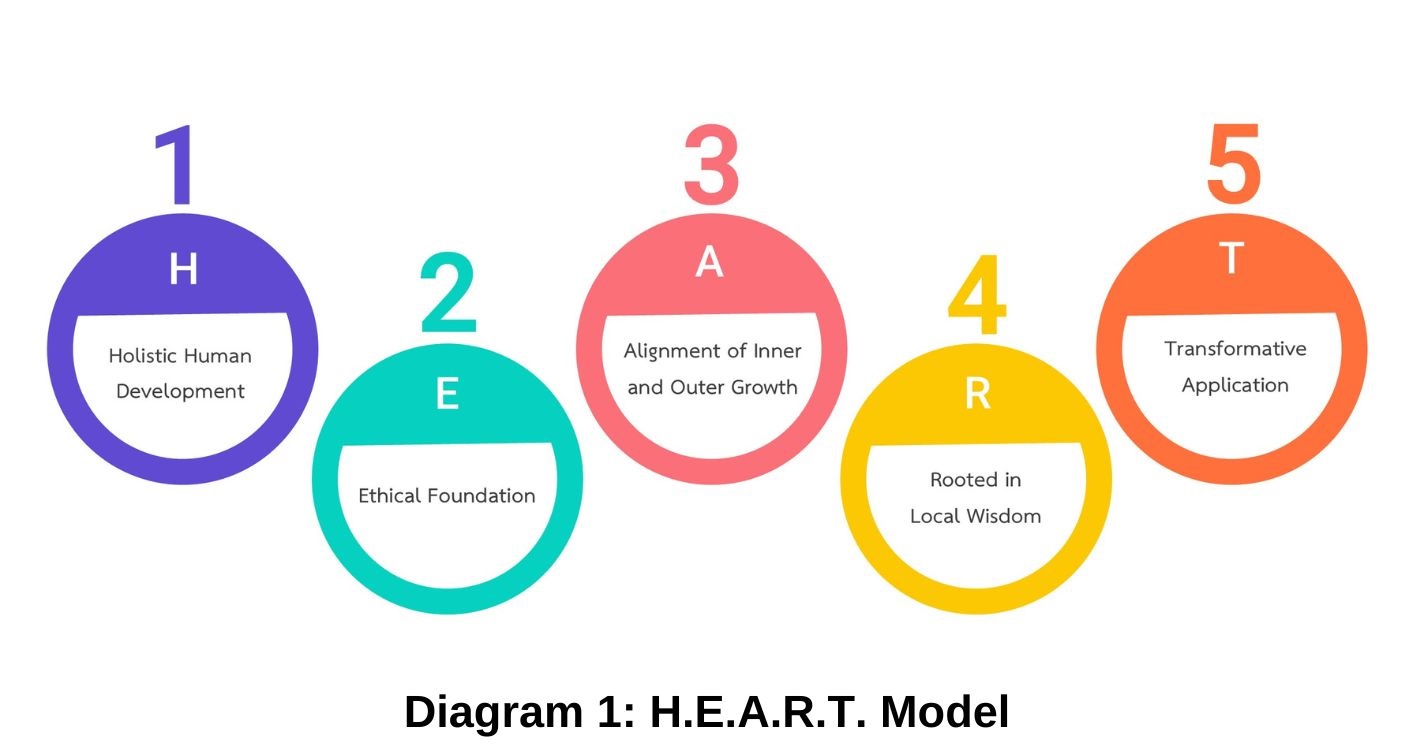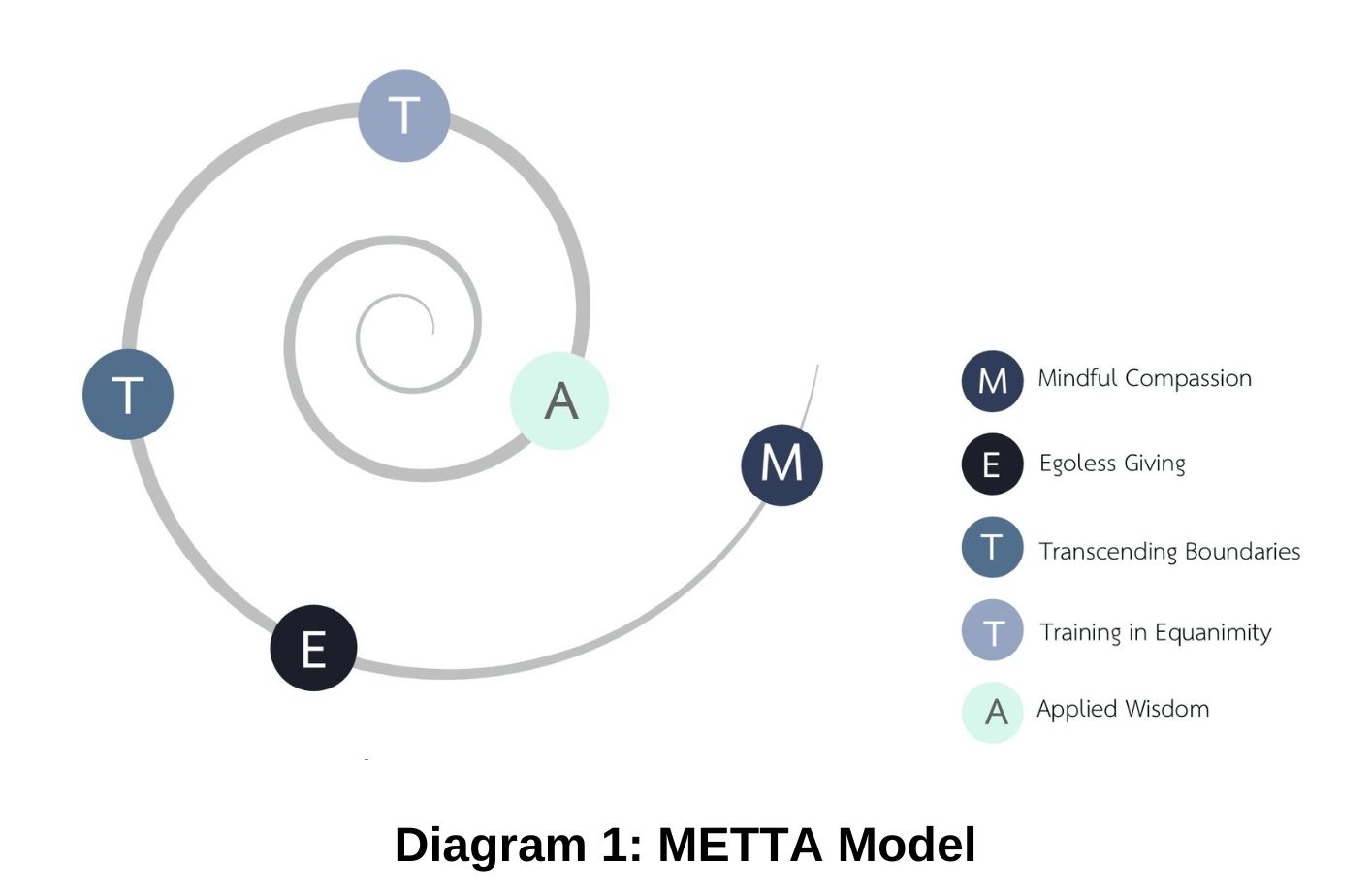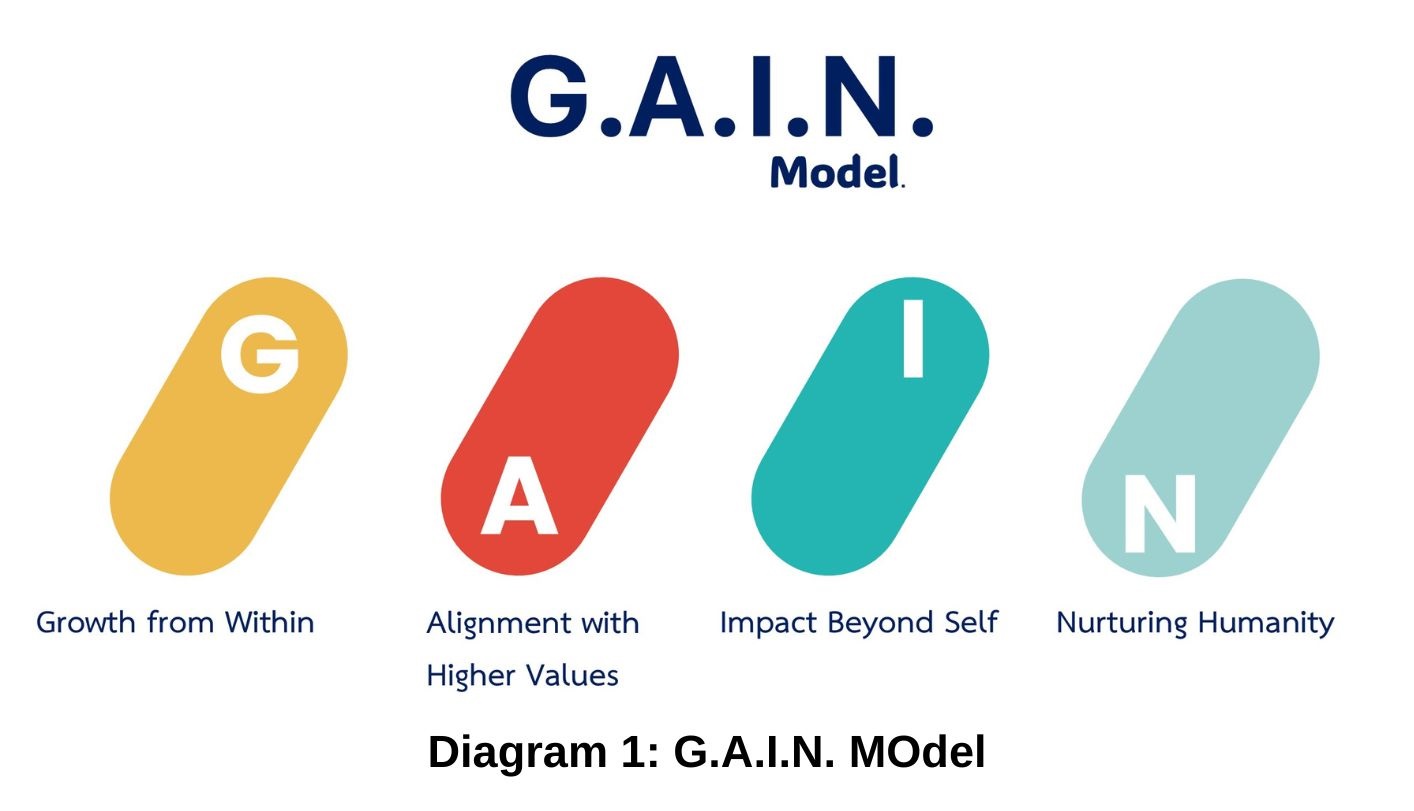Vol. 2 No. 4 (2025): April
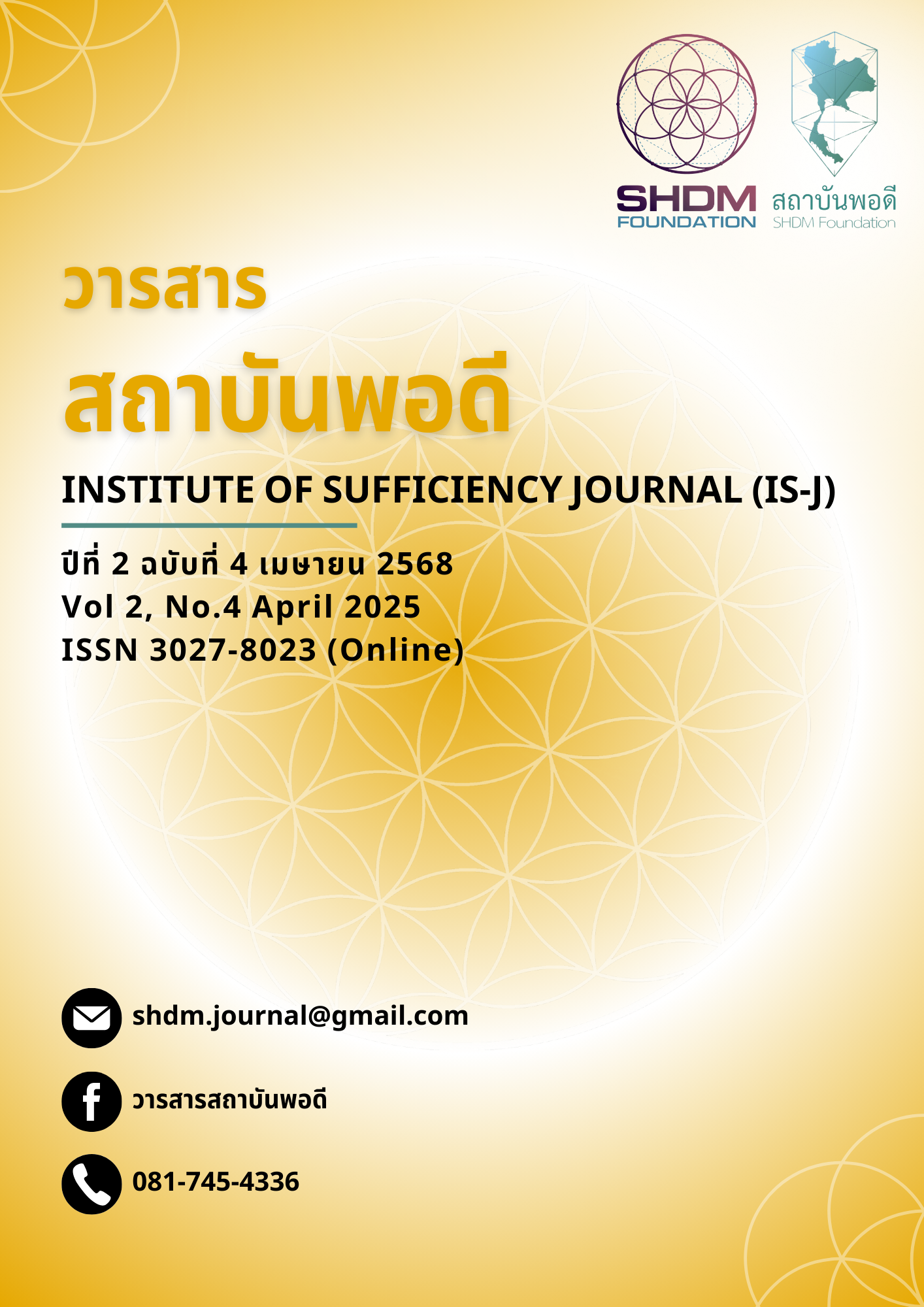
Editorial
Institute of Sufficiency Journal, Vol. 2 No. 4, April 2025
The research and academic articles published in the Institute of Sufficiency Journal, Volume 2, Issue 4, April 2025, have been well received by researchers, academics, university lecturers from various institutions, as well as independent scholars who have shown continuous interest in submitting their work for publication. The journal is also honored to receive the support of distinguished experts in multiple disciplines, who serve as advisors, editorial board members, and peer reviewers. Their expertise plays a crucial role in enhancing the academic quality of the journal in accordance with the evaluation criteria of the Thai Journal Citation Index Centre (TCI).
This issue comprises four research articles and two academic articles, as follows:
Research Articles
-
Achievement Motivation and Educational Administration of Educational Personnel in Educational Service Area Offices
This study examined the level of achievement motivation and educational administration, as well as the relationship between them, using a quantitative research approach. The findings revealed a positive correlation between achievement motivation and educational administration, particularly in academic administration, which plays a crucial role in enhancing educational quality. -
Work-Life Balance in the Organizational Culture of Educational Personnel in an Educational Service Area Office
This study examined the levels of work-life balance, organizational culture, and the relationship between them using a quantitative survey approach. The findings indicated that both work-life balance and organizational culture were at a high level, with a statistically significant moderate positive correlation—particularly a strong link with the sense of organizational belonging. -
Mindset and Performance Outcomes of Educational Personnel in the Bangkok Primary Educational Service Area Office
This study aimed to examine the levels of mindset and performance outcomes, as well as the relationship between them among educational personnel. Utilizing a quantitative survey approach, the findings indicated that both mindset and performance outcomes were at a high level. Moreover, a statistically significant moderate positive correlation was found between mindset and performance outcomes. -
A Comparative Study of the Inner Development Goals and the Philosophy of Sufficiency Economy
This article compares the goals of the Inner Development Goals (IDGs) and the Philosophy of Sufficiency Economy by analyzing their shared and differing perspectives in both concept and application. The study proposes the H.E.A.R.T. Model as an integrated framework that supports sustainable human development at personal, organizational, and policy levels.
Academic Articles
-
Metta Parami in Theravada Buddhist Philosophy
This article explores the practice of Metta Parami in the Pali Canon through the lens of Theravada Buddhist philosophy. The study reveals that Metta Parami is not merely a basic virtue, but a profound ethical force that transforms the inner self. The proposed METTA Model—Mindful Compassion, Egoless Giving, Transcending Boundaries, Training in Equanimity, and Applied Wisdom—offers a practical framework for ethical development on personal, organizational, and societal levels. -
The Application of the 16th Royal Working Principle: Our Loss is Our Gain
This article examines the 16th Royal Working Principle, “Our loss is our gain,” through philosophical analysis, incorporating Inner Development Goals (IDGs) and the Sufficiency Economy Philosophy. It proposes the G.A.I.N. model, which reframes self-sacrifice as a profound and sustainable value. The model emphasizes inner growth, ethical alignment, social impact, and human development as pathways to meaningful and enduring transformation on individual, organizational, and societal levels.
All articles in this issue have undergone a thorough review process. The editorial board conducted an initial quality screening before submitting each article to three independent experts for peer review. The selection process strictly follows the standards set by the Thai Journal Citation Index Centre (TCI), with emphasis on the alignment of each article to the journal’s objectives and its contribution to applicable academic knowledge.
The editorial board sincerely hopes that the articles published in this issue will serve as a valuable contribution to advancing knowledge in education, administration, philosophy, and sustainable social development in Thailand and beyond.

